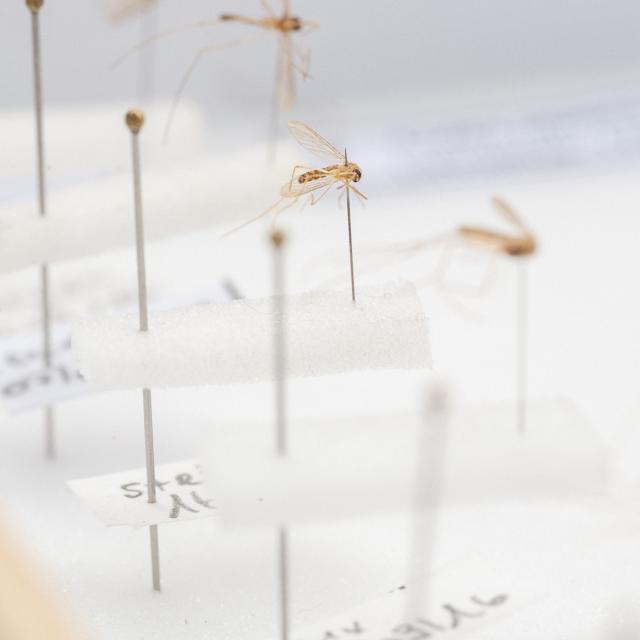"There are always surprises with viruses"
By Audrey Somnard, Lex Kleren Switch to French for original article
Mosquitoes are small but they are vectors of viruses capable of decimating populations. Present since the dinosaurs era, mosquitoes can tell us a great deal about ourselves.
During his visit to Luxembourg, we spoke to Professor Alain Kohl, who holds a chair in virology at the Liverpool School of Tropical Medicine. The Luxembourg researcher is particularly interested in mosquitoes, the vectors of exotic viruses that are spreading to our regions.
Lëtzebuerger Journal: You spoke about mosquitoes at the conference "Man versus Mosquito: World War Zzzzzzzz" as part of the Institut Grand-Ducal's "Luxembourg Researchers Abroad" series. How did this subject come to you? It's obviously linked to your speciality, as a virologist, isn't it?
Professor Alain Kohl: I'm a professor of virology and emerging and infectious diseases. Generally speaking, I'm interested in the interactions between viruses, cells and immune systems. However, my research focuses on mosquito-borne viruses, which explains my strong interest in the biology of these insects. I've noticed that when I give virology presentations to the general public, the hard-core subject is perhaps not the most popular, so I look for more accessible stories. Virtually everyone has been bitten by a mosquito, so there's a natural link with these vectors, whether they're mosquitoes, ticks or midges. For example, the Asian tiger mosquito is now well established in a large part of France, and I try to find interesting angles from a biological point of view that are still captivating for the public.
The general public often fears larger predators such as sharks or bears, whereas a simple mosquito, albeit small, can be much more dangerous.
Mosquitoes have been with us since the time of the dinosaurs, surviving the extinction of the latter. Their ability to adapt to humans and other animals shows a certain resilience. Fossils of mosquitoes are even found well-preserved in stone, testifying to their remarkable evolution.
Have mosquitoes always been vectors of viruses and diseases?
Yes, DNA from plasmodium, the causative agent of malaria, can be found even in mosquitoes fossilised in amber dating from the Eocene (the beginning of the Eocene is marked by the emergence of the first modern mammals, and its end by a mass extinction, known as the "Grande Coupure" or "Great Cut", ed). These pathogens co-evolved with mosquitoes long before the arrival of modern humans. Mosquitoes such as Aedes aegypti are native to sub-Saharan Africa, but have been distributed by humans in virtually all tropical regions of the world. Its ancestral form in the forests of East Africa is not really adapted to humans. There, the mosquito may be right next to you but will not attack you. Its evolved form, on the other hand, prefers to take blood meals from humans, and has adapted well to our environment. It spread via the slave trade in South America. Their migration to Asia is more complex, probably involving journeys from Africa to America, with boats passing through Africa via the Suez Canal. However, these developments are difficult to date precisely.
You want more? Get access now.
-
One-year subscription€185.00/year
-
Monthly subscription€18.50/month
-
Zukunftsabo for subscribers under the age of 26€120.00/year
Already have an account?
Log in


